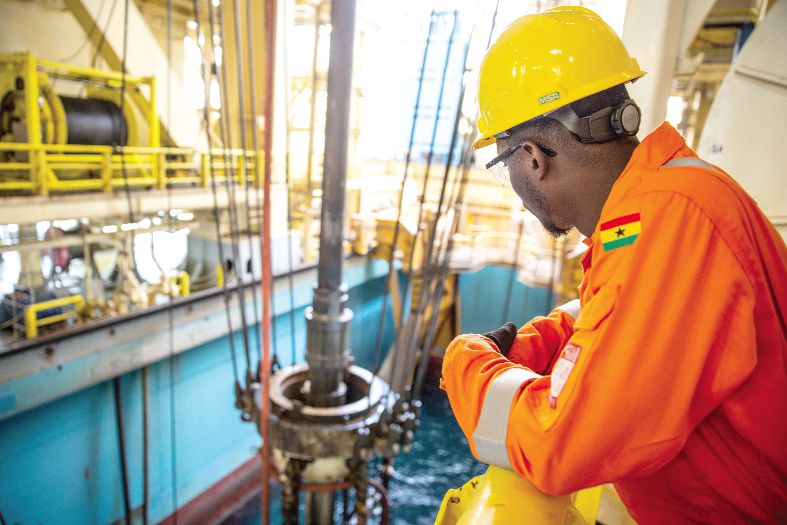In May, Exxon Mobil pulled out of an offshore project in Ghana, hurting its nascent oil and gas sector. The move was part of a wider push to reduce carbon emissions by the American multinational, but it subsequently forced the government to draft a new investment plan that will accelerate oil and gas exploration by acquiring and developing assets.
A parliamentary proceeding in Accra on Monday estimated nearly $1.3 billion will be required to buy a 37% stake in the Deep Water Tano/Cape Three Points asset operated by Aker Energy and 70% stake of the South Deep Water Tano field operated by AGM Petroleum Ghana.
The time has come for Ghanaians to “become masters of our own destiny when it comes to our oil and gas resources,” Charles Adu Boahen, Minister of State at the Ministry of Finance, told Bloomberg by phone. “There will certainly be the demand for fossil fuels in countries outside of the West that will continue to use diesel- and petrol-fired cars and consume power generated from fossil fuels for the foreseeable future,” he said.
Aker Energy is also in talks with authorities to reduce the development cost of its Pecan oil field, for which Ghana is now seeking to borrow $350 million to cover capital expenditure, bringing the total funds required to $1.65 billion.
Ghana’s public debt stood at 77.1% of its economic output by the end of June. Finance Minister Ken Ofori-Atta has defended the push to pile more debt by warning that the country could be left with stranded assets if it didn’t accelerate exploration amid the transition to renewable energy.
That is real threat since the climate change movement has stamped its foot in the west. Between 2015 and 2020, according to BloombergNEF, nine of the world’s largest international oil companies sold $198 billion worth of assets.
Moreover, a shortfall in oil receipts and the fallout from the pandemic pushed Ghana’s 2020 budget deficit to 11.7% of gross domestic product, compared to an initial projection of 4.7%.

